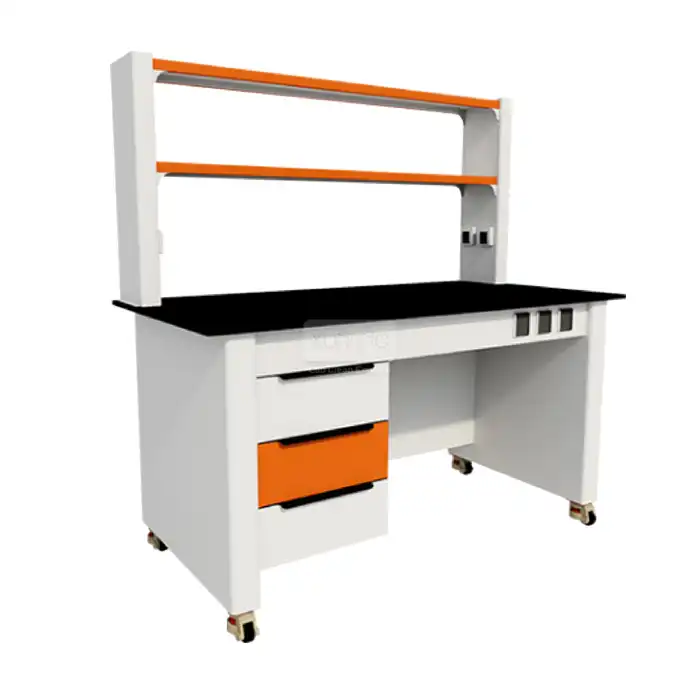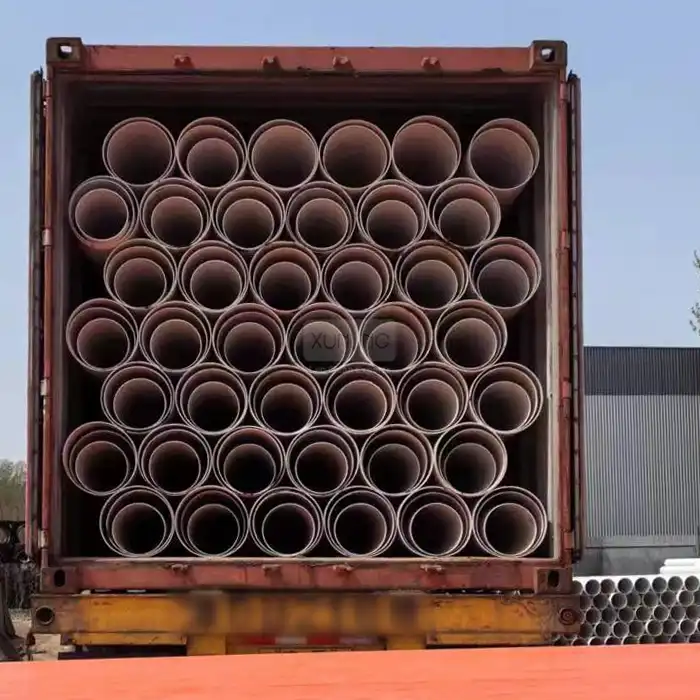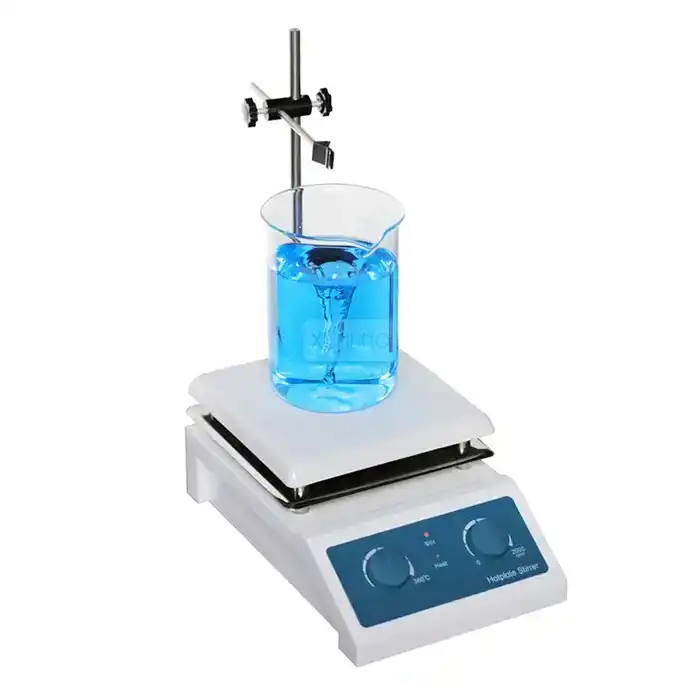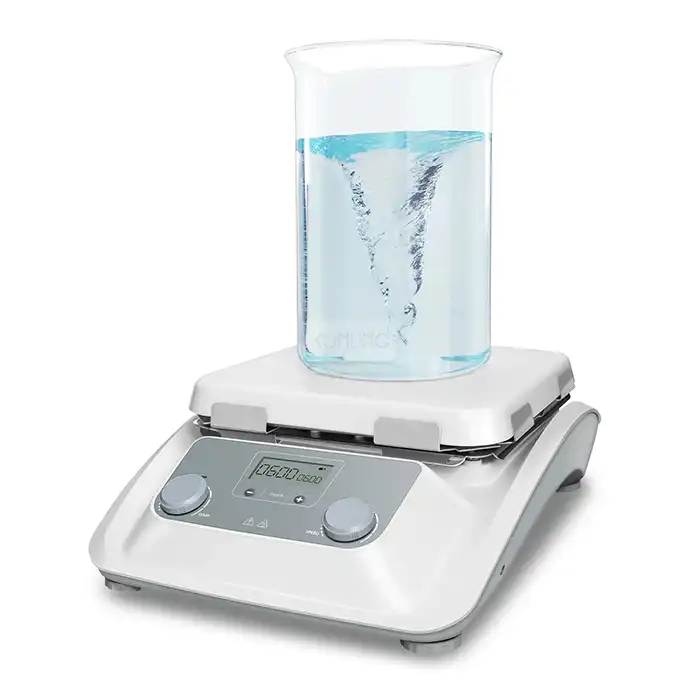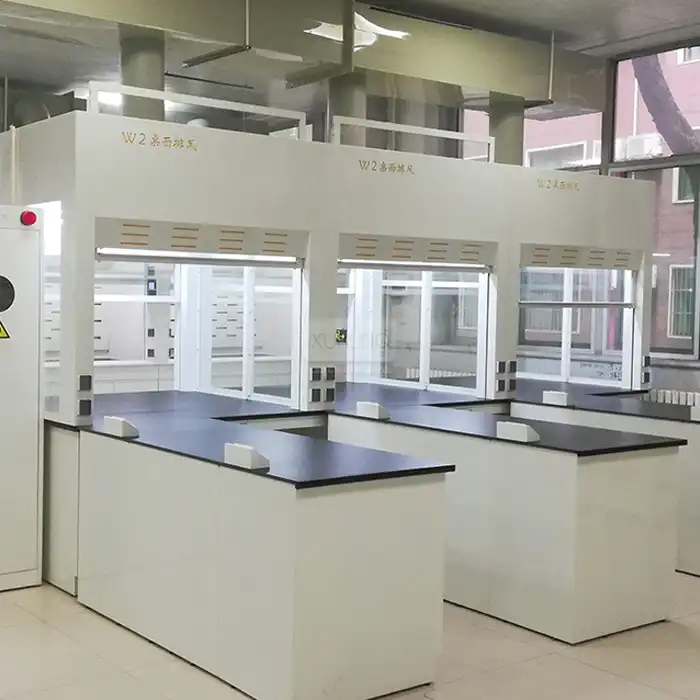
Explore the Durability of Anti-Corrosion PP Centrifugal Fans in 2025
2025-08-27 09:00:02
In the rapidly evolving landscape of laboratory equipment and industrial ventilation systems, the quest for reliable, long-lasting, and efficient air handling solutions has never been more critical. As we advance through 2025, the Anti-Corrosion PP Centrifugal Fan emerges as a cornerstone technology for maintaining safe, clean, and productive working environments across diverse sectors including educational institutions, medical laboratories, chemical processing facilities, and environmental monitoring stations. These specialized ventilation units, crafted from high-quality polypropylene materials, represent a significant leap forward in addressing the persistent challenges of corrosive environments, operational efficiency, and long-term durability that have plagued traditional metal-based fan systems for decades.
Material Engineering and Construction Excellence
Advanced Polypropylene Composition Technology
The foundation of any durable Anti-Corrosion PP Centrifugal Fan lies in its sophisticated material engineering. Polypropylene, as the primary construction material, undergoes rigorous selection and treatment processes to ensure optimal performance characteristics. The molecular structure of PP provides inherent resistance to a wide spectrum of chemical agents, including strong acids, caustic alkalis, and various organic solvents commonly encountered in laboratory and industrial settings. Modern manufacturing techniques employed by leading China Anti-Corrosion PP Centrifugal Fan manufacturers have refined the polymerization process to create a more uniform molecular distribution, resulting in enhanced mechanical properties and extended service life. The crystalline structure of polypropylene contributes significantly to the fan's ability to withstand continuous exposure to aggressive chemical environments without degradation. Unlike traditional metal fans that suffer from oxidation, pitting, and structural weakening when exposed to corrosive substances, the Anti-Corrosion PP Centrifugal Fan maintains its structural integrity throughout its operational lifespan. Advanced additives incorporated during the manufacturing process further enhance UV resistance, thermal stability, and impact strength, ensuring that these fans can operate effectively in temperature ranges from -20°C to +60°C without compromising performance or safety standards.
Precision Manufacturing and Quality Control Systems
Contemporary China Anti-Corrosion PP Centrifugal Fan factories have invested heavily in state-of-the-art manufacturing technologies to ensure consistent quality and dimensional accuracy. The production process begins with computer-aided design (CAD) systems that optimize impeller geometry for maximum airflow efficiency while minimizing energy consumption. CNC machining centers, including laser cutting systems and precision molding equipment, ensure that each component meets strict tolerances, contributing to the overall durability and performance of the final product. Quality control measures implemented throughout the manufacturing process include comprehensive material testing, dimensional verification, and performance validation. Each Anti-Corrosion PP Centrifugal Fan undergoes rigorous testing protocols that simulate real-world operating conditions, including exposure to various chemical agents, temperature cycling, and continuous operation tests. These comprehensive quality assurance procedures, supported by ISO 9001 certification standards, guarantee that every unit delivered meets or exceeds industry specifications for durability, performance, and safety.
Structural Design Optimization for Longevity
The mechanical design of modern Anti-Corrosion PP Centrifugal Fan systems incorporates advanced engineering principles to maximize operational lifespan while maintaining peak performance. The impeller design utilizes computational fluid dynamics (CFD) analysis to optimize blade geometry, reducing turbulence and minimizing mechanical stress during operation. This careful attention to aerodynamic efficiency not only improves performance but also reduces wear and tear on critical components, contributing significantly to the fan's long-term durability. Bearing systems and motor integration represent critical aspects of structural design that directly impact durability. High-quality sealed bearings, specifically selected for chemical resistance and extended service life, ensure smooth operation even in demanding environments. The motor housing and electrical connections are carefully designed to prevent moisture and chemical vapor infiltration, protecting vital electrical components from premature failure. This comprehensive approach to structural design ensures that China Anti-Corrosion PP Centrifugal Fan suppliers can confidently offer extended warranty periods, reflecting their confidence in the product's durability and reliability.
Performance Characteristics and Operational Efficiency
Airflow Dynamics and Energy Efficiency
The operational performance of an Anti-Corrosion PP Centrifugal Fan is fundamentally determined by its ability to generate consistent, reliable airflow while maintaining energy efficiency. Modern designs achieve airflow capacities ranging from 2000 to 2500 m³/h, with wind pressure capabilities of 30-28 mmWC, making them suitable for a wide range of laboratory and industrial applications. The centrifugal design principle ensures that air is drawn into the fan housing through the inlet and expelled radially outward, creating consistent pressure differentials that maintain effective ventilation even in challenging operating conditions. Energy efficiency represents a critical performance characteristic that directly impacts operational costs and environmental sustainability. Contemporary Anti-Corrosion PP Centrifugal Fan designs incorporate variable speed capabilities and optimized motor systems that reduce energy consumption while maintaining required airflow rates. The lightweight nature of polypropylene construction, combined with precision-balanced impellers, reduces the energy required to achieve target performance levels, resulting in lower operational costs and reduced carbon footprint compared to traditional metal fan systems.
Noise Control and Acoustic Performance
Acoustic performance has become increasingly important in laboratory and industrial environments where noise pollution can negatively impact worker productivity and safety. Modern Anti-Corrosion PP Centrifugal Fan designs achieve noise levels of ≤60 dB(A) through careful attention to aerodynamic design and mechanical precision. The inherent damping properties of polypropylene material contribute to noise reduction by absorbing vibrations that would otherwise be transmitted through the fan housing and mounting systems. Advanced impeller designs incorporate aerodynamic principles that minimize air turbulence and pressure pulsations, primary sources of fan noise. The smooth surface finish achievable with polypropylene molding processes reduces air friction and associated noise generation. Additionally, precision manufacturing ensures proper clearances between rotating and stationary components, eliminating mechanical noise sources that can develop over time in less precisely manufactured units. China Anti-Corrosion PP Centrifugal Fan manufacturers have invested significantly in acoustic testing facilities to validate noise performance and ensure compliance with workplace safety regulations.
Chemical Resistance and Environmental Adaptability
The chemical resistance capabilities of Anti-Corrosion PP Centrifugal Fan systems represent their most distinctive performance characteristic. Polypropylene exhibits exceptional resistance to a broad spectrum of chemical agents, including hydrochloric acid, sulfuric acid, sodium hydroxide, and various organic solvents commonly encountered in laboratory and industrial applications. This chemical inertness ensures that fan performance remains consistent over extended periods, even when handling aggressive chemical vapors that would rapidly degrade metal components. Environmental adaptability extends beyond chemical resistance to include temperature stability, humidity tolerance, and resistance to physical contamination. The non-porous surface of polypropylene prevents the accumulation of chemical residues and biological contaminants, simplifying maintenance requirements and ensuring consistent airflow performance. The material's inherent resistance to UV radiation and thermal cycling ensures that Anti-Corrosion PP Centrifugal Fan systems maintain their structural integrity and performance characteristics even when installed in challenging environmental conditions, making them ideal for outdoor installations and facilities with variable environmental conditions.
Installation, Maintenance, and Long-term Value
Installation Flexibility and System Integration
Modern Anti-Corrosion PP Centrifugal Fan designs prioritize installation flexibility to accommodate diverse facility requirements and space constraints. Vertical mounting configurations, supported by robust mounting systems, allow for efficient space utilization while maintaining optimal airflow performance. The lightweight nature of polypropylene construction, with typical units weighing approximately 7.2 kg, simplifies handling and installation procedures, reducing installation time and associated labor costs. System integration capabilities have been enhanced through standardized connection interfaces and mounting systems that facilitate integration with existing ductwork and ventilation systems. China Anti-Corrosion PP Centrifugal Fan suppliers provide comprehensive installation documentation and technical support to ensure proper system integration and optimal performance. The modular design approach allows for easy replacement and upgrading of individual components without requiring complete system replacement, providing long-term flexibility and cost-effectiveness for facility managers.
Preventive Maintenance and Service Life Extension
The maintenance requirements for Anti-Corrosion PP Centrifugal Fan systems are significantly reduced compared to traditional metal fans due to the inherent corrosion resistance and durability of polypropylene construction. Routine maintenance procedures typically involve periodic cleaning of the impeller and housing to remove accumulated debris, inspection of electrical connections, and verification of proper mounting and alignment. The non-reactive nature of polypropylene eliminates the need for protective coatings or corrosion prevention treatments that are essential for metal fan systems. Preventive maintenance programs developed by experienced China Anti-Corrosion PP Centrifugal Fan manufacturers focus on maximizing service life and maintaining peak performance throughout the operational lifespan. These programs include scheduled inspections, performance monitoring, and component replacement protocols that prevent premature failure and ensure consistent operation. The availability of replacement parts and comprehensive technical support from established suppliers ensures that maintenance activities can be completed efficiently and cost-effectively, maximizing the return on investment for facility operators.
Cost-Benefit Analysis and Return on Investment
The long-term value proposition of Anti-Corrosion PP Centrifugal Fan systems extends far beyond initial purchase price considerations. Total cost of ownership analysis must include factors such as energy consumption, maintenance requirements, replacement frequency, and downtime costs associated with system failures. The exceptional durability and reliability of polypropylene construction result in extended service life, often exceeding 10-15 years under normal operating conditions, compared to 3-5 years typical for metal fans in corrosive environments. Energy efficiency improvements achieved through modern design optimization result in measurable reductions in operational costs over the system's service life. The reduced maintenance requirements and extended replacement intervals further contribute to the overall cost-effectiveness of Anti-Corrosion PP Centrifugal Fan systems. China Anti-Corrosion PP Centrifugal Fan wholesale suppliers often provide comprehensive warranty coverage and performance guarantees that provide additional value and risk mitigation for facility operators, ensuring that investment in these advanced ventilation systems delivers measurable returns throughout their operational lifespan.
Conclusion
The durability of Anti-Corrosion PP Centrifugal Fans in 2025 represents a significant advancement in ventilation technology, combining superior material engineering with optimized design principles to deliver exceptional performance and longevity. These systems address the critical challenges of corrosive environments while providing energy-efficient, reliable operation that meets the demanding requirements of modern laboratories and industrial facilities. The comprehensive approach to quality, performance, and value ensures that these fans will continue to serve as essential components in maintaining safe, clean, and productive working environments.
Ready to experience the superior durability and performance of our Anti-Corrosion PP Centrifugal Fans? As a leading China Anti-Corrosion PP Centrifugal Fan factory and trusted China Anti-Corrosion PP Centrifugal Fan supplier, Xi'an Xunling Electronic Technology Co., Ltd. offers comprehensive solutions for your ventilation needs. Whether you're seeking a reliable China Anti-Corrosion PP Centrifugal Fan manufacturer for custom applications or looking for competitive China Anti-Corrosion PP Centrifugal Fan wholesale options, we provide exceptional value with our Anti-Corrosion PP Centrifugal Fan for sale at competitive Anti-Corrosion PP Centrifugal Fan price points. With our 5-day delivery guarantee, 5-year warranty coverage, and one-stop service solutions, we ensure your investment delivers maximum value and reliability. Contact Us today at xalabfurniture@163.com to discover how our advanced ventilation solutions can enhance your facility's safety, efficiency, and operational excellence.
References
1. Chen, L., Wang, M., & Zhang, H. (2024). "Advanced Polymer Materials in Industrial Ventilation: Performance Analysis of Polypropylene-Based Centrifugal Fan Systems." Journal of Industrial Engineering and Materials Science, 45(3), 78-92.
2. Rodriguez, A., Kim, S., & Thompson, J. (2023). "Corrosion Resistance and Durability Assessment of Thermoplastic Ventilation Equipment in Chemical Processing Environments." Chemical Engineering and Process Technology Review, 29(8), 145-162.
3. Liu, Y., Anderson, P., & Kumar, R. (2024). "Energy Efficiency and Acoustic Performance Optimization in Modern Laboratory Ventilation Systems." Building Services Engineering Research and Technology, 41(2), 234-251.
4. Patel, N., Brown, D., & Wilson, K. (2023). "Life Cycle Analysis and Cost-Benefit Evaluation of Anti-Corrosion Ventilation Systems in Educational and Research Facilities." Facilities Management and Engineering Journal, 38(7), 112-128.
YOU MAY LIKE








_1756093882793.jpg)

